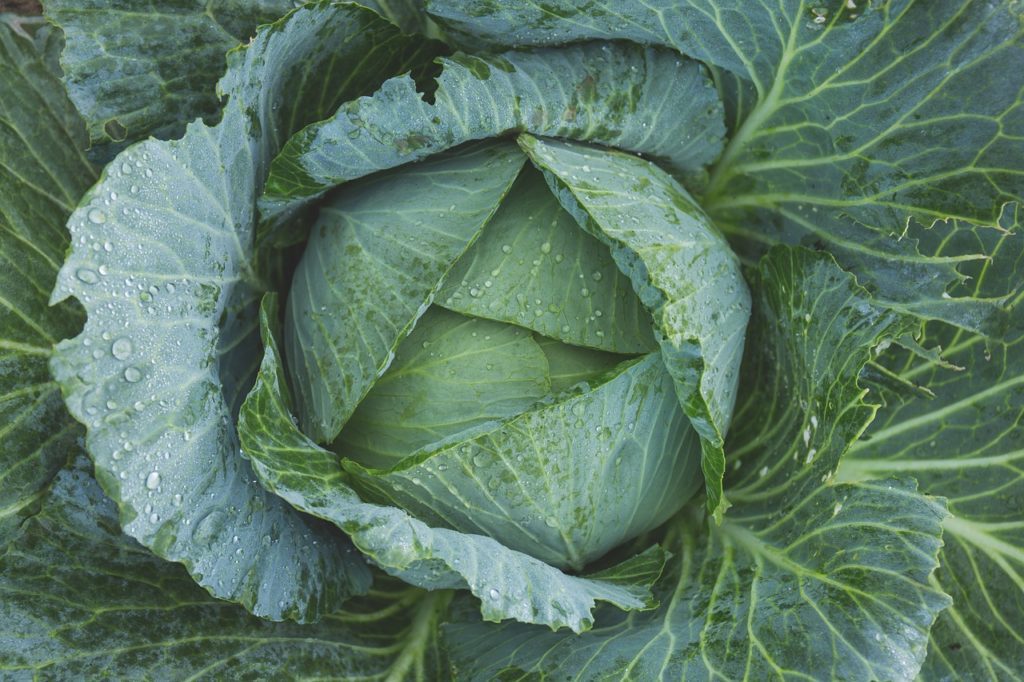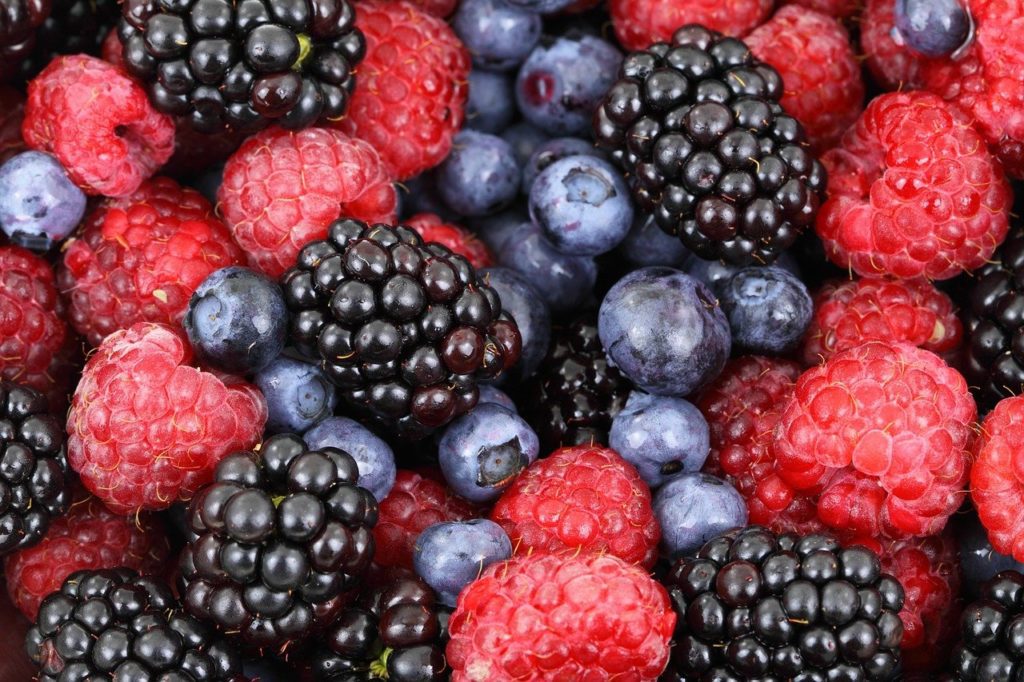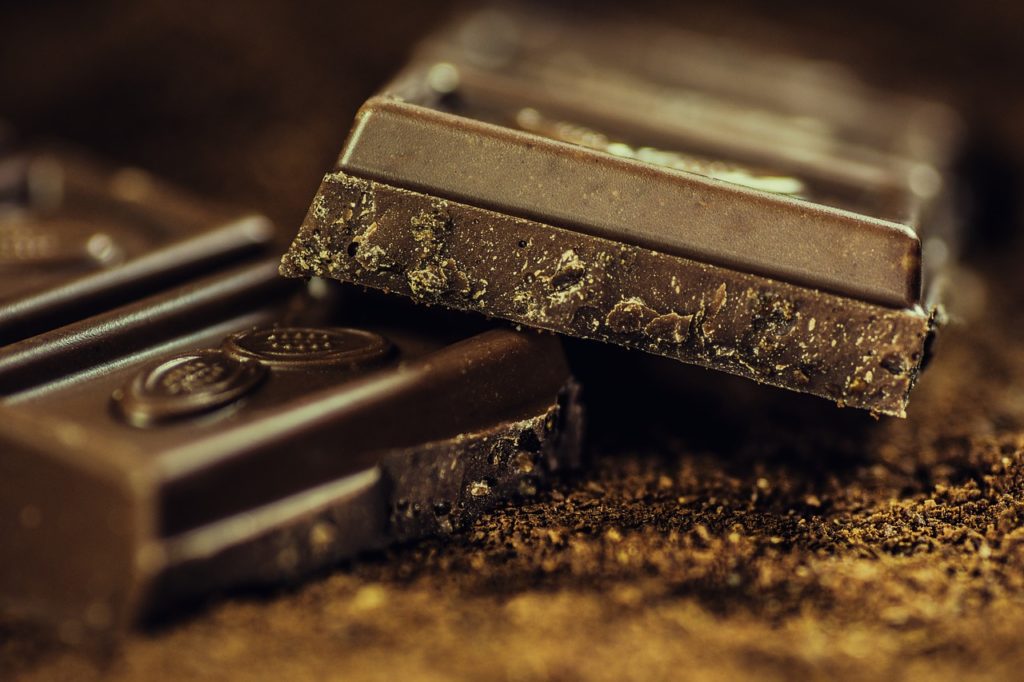We all know the importance of a healthy diet to keep the body working at its optimal. But what about healthy food for a healthy mind?
Sometimes in the battle to keep up with trendy diets, folks end up consuming a lot of processed foods that may help dieters lose weight, but aren’t necessarily good for the body.
And bogging down the body with these foods can negatively impact the mind as well. Then it’s a domino effect from there.
Healthy Food for a Healthy Mind
Fortunately, the foods that are generally good for heart and blood vessel health are the same that help keep our brains firing on all cylinders. At the base of a healthy brain diet are veggies, fruits, legumes, and whole grains. And protein comes predominantly from plants sources, fish, and healthy unsaturated oils.
We’ll take a look at ten types of food you’ll want as a regular part of your diet when focusing on powering your brain.
1. Leafy Green Veggies

Say what you want about greens like kale, spinach, and collards, but they’re loaded with vitamin K, folate, lutein, and beta carotene. And your brain loves these. Plus, greens such as these are so versatile that you can add them into soups, rice dishes, and smoothies to get your daily fill.
Another leafy green veggie that’s especially good for brain health is broccoli. Part of the cruciferous gang that includes Brussels sprouts, cauliflower, bok choy, cabbage, and the above-mentioned kale, these are all rich in vitamin C, flavonoids, and glucosinolates.
2. Whole Grains
The anti-carb movement in so many diets has cast a shadow over some of the most valuable carbs for the heart and brain. Whole grains are packed with vitamin E – a vitamin shown to be beneficial for cognitive functioning.
When choosing carbs, go with whole-grain bread and pasta, and swap out the white rice for brown. Bulgar wheat, oatmeal, farro, and barley are also great sources.
3. Fatty Fish
When we say fatty fish, we’re not talking about the deep-fried variety that comes with a plate of fries. We’re referring to fish such as salmon, tuna, cod, and herring that are abundant sources of omega-3 fatty acids. Eating at least two servings per week could lower your blood levels of beta-amyloid – the protein that forms harmful clumps in the brains of those with Alzheimer’s.
When selecting fish, try to stick to varieties that are lower in mercury. Or if fish is really not your thing, you could opt for an omega-3 supplement as well.
4. Eggs
They’re incredible and edible. (If you were around in the 70s, you get the reference.) Similar to carbs, eggs got a bad rap for a few years because of their cholesterol content. But now, they’re lauded for their brain benefits. They’re a great source of B vitamins such as B-6, B-12, and folic acid. And they pack a real protein punch in a small package.
5. Berries

The natural plant pigments that give berries their gorgeous hues are known as flavonoids. They also happen to help improve memory too. So by eating two or more servings of berries per week, you could be delaying memory decline by up to two years or more.
Plus, they’re great on that oatmeal we discussed above.
6. Coffee and Tea
There’s nothing inherently wrong with watching your caffeine consumption. Especially if you struggle with anxiety issues. But it turns out that tipping back caffeinated tea or coffee could just help you with better mental functioning and solidifying new memories.
If you’re a decaf drinker though, don’t fret. Coffee and tea are also sources of antioxidants that could lessen the risk of cognitive decline, stroke, Parkinson’s, and Alzheimer’s. And without the jitters.
8. Nuts and Seeds
With a high concentration of omega-3 fatty acids and antioxidants, nuts and seeds are amazing sources of healthful fats and proteins. They’re also a great source of the aforementioned vitamin E which protects cells from oxidative stress that’s caused by those nasty free radicals.
Almonds, hazelnuts, and sunflower seeds have the highest amount of vitamin E.
In addition, walnuts take the cake for high amounts of the omega-3 fatty acid known as alpha-linolenic acid (ALA). Diets heavy in ALA and other omega-3 fatty acids are recommended for those looking to lower blood pressure keep their arteries clear.
9. Peanuts
Peanuts are not included in the nuts and seeds category because they are in the legume family along with peas and beans.
Along with all of the vitamins and minerals we’ve showcased so far, peanuts also have high levels of resveratrol. Studies suggest that this non-flavonoid antioxidant can have protective effects from inflammation, as well as certain neurological diseases and some kinds of cancers.
10. Dark Chocolate

Yep. Go ahead and celebrate dark chocolate. Because cacao flavonoids are especially good for the brain. They encourage neuron and blood vessel growth to parts of the brain that involve memory and learning. Furthermore, they may stimulate blood flow to the brain.
Of course, the caveat here is to not go overboard. A little dark chocolate goes a long way. So no need to slam down that one-pound bar from Trader Joe’s in one sitting. A few squares oughta do the trick.
The Mind-Body Connection
The old saying, “we are what we eat,” carries truth. So it’s important to keep a focus on healthy food for a healthy mind and body overall.
Then supplement that with a mindfulness practice such as yoga or meditation to really give your brain the boost it needs! Contact us today to find out how we can bring these right to your place of work – either in-person or virtually.
And embrace yourself – mind, body, and spirit.



